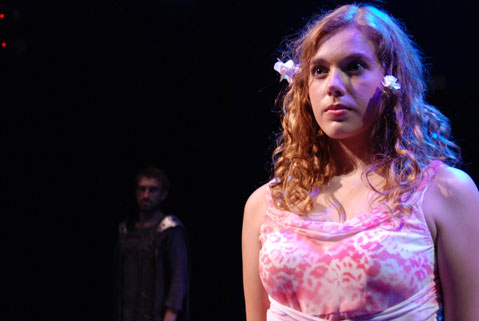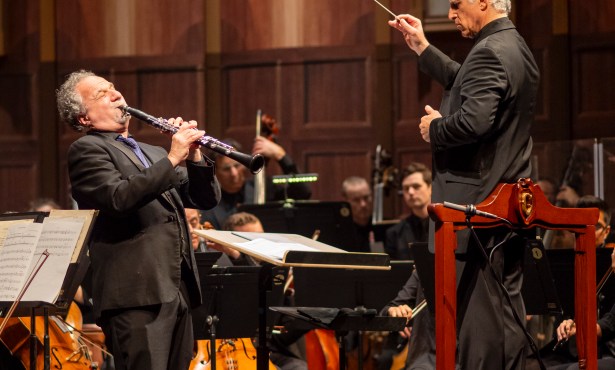New Plays, Program B
At UCSB's Performing Arts Theatre, Saturday, May 24.

This trio of new plays by UCSB student playwrights-Bellows by Nathan Kuljian, The Blue Elephant by Stacy Johnstone, and Winter Fruit by Corrie Tritz-focuses on the paradox of painful memories. Recalling them reminds their possessor of what was lost and generates ongoing distress, yet to deny painful memories too easily invites their unexpected return. It seems that no matter which course is taken, difficult memories always linger in one form or another.
Bellows was directed by Rose Elfman and tells the story of Hal Bellows (Jonathan Hyatt), an old man haunted by love, war, and a failed marriage. Hal’s wife Angelina (Erin Johnson) lives in remorse for having abandoned her child Ramona (Noemi Gonzalez) to run off with Hal. In addition to addressing the paradox of memory, the relationship between Angelina and Hal approaches the underlying matters of a man’s assumption that a woman needs him and of a woman’s duty to “lie to live and believe her lies to love.”
The middle piece, The Blue Elephant, is a brilliant tribute to all girls who have ever lived in silence. Jess (Shannon Sullivan) is a 16-year-old who is pregnant by her boyfriend, Bill (Jonathan Aldana). Her parents then hide her in a convent. In a poignant scene between Jess and Ana (Samantha Posey), a second pregnant teenage girl helps Jess burst through her parents’ cover-up to disclose the truth. Despite helping Jess to go public, Ana prefers denial for herself because she would rather “forget like [she’s] supposed to” than “fight against it.” Overall, Elephant director Angela Cruz put together a clear and approachable play in which Sullivan and Posey shine.
Winter Fruit, directed by Allison Menzimer, attempted to retell the Greek myth of Persephone in modern slang. Persephone (Alexia Dox) is stolen from her Swineherd (Bryan Forrest) by Hades (Sam Rolens). Shy (Andres Enriquez) and Shiver (Natasha Lloyd) keep Persephone company while Hades attempts to make her happy with such classically ineffectual admonitions as “you should eat something.” Winter Fruit is the most humorous of the three plays thanks to Hades’ dry humor and Shy and Shiver’s slow manner and impulsive reactions.
This set of three plays was well constructed, and each of them succeeds in conveying another aspect of the ongoing conflict between painful memories and their repression.



